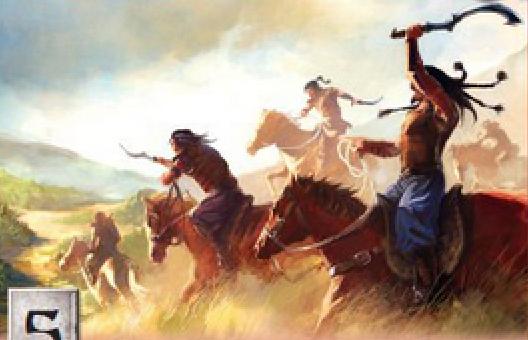I really wonder at times, just how much actual history do even the "realistic" or simply put very edgy or "grimdark" fantasy writers actually know
Martin's understanding of "realistic" history is
extremely sparse. He fundamentally treats his universe as if it's modern day except that people use swords and bows instead of guns. But in structure? Planetos is basically post-modernist with a thin coat of medieval paint on it.
For starters their armies aren't medieval. It looks like it at a glance but doesn't act like it. Feudalism is fundamentally a system based on not having much in the way of infrastructure or bureaucracy. It's the king basically with his drinking buddies splitting up the map, and his buddies each have a dozen or so drinking buddies under them splitting up their share of the map, and so forth until you get to landless knights who probably have a few men-at-arms as their drinking buddies. Typically each person owes the guy above him in the chain a certain amount of service each year (the most common was 40 days per year) but needed the rest of their year to handle running their slice of the map. Armies were typically tiny and wars were actually surprisingly short lived because you only had 40 days before you had to start dishing out fat stacks of cash to your armies, and nobody really had that kind of money because there wasn't a bureaucracy to collect taxes and farmers didn't produce a lot of surplus to support armies anyway. In GoT we have something more akin to modern standing armies, in size and logistics since they're somehow able to field vast armies despite the fact that such numbers should choke them for food and they shouldn't be able to make armies march so long anyway since all those people are supposed to have duties at home to take care of.
The Westerosi have religion but they
don't actually believe in it, much like post-modern people tend to. Actual Medieval kings were highly faithful and served a role in worship. They built edifices to the church and things like a King being infidel to his wife were really serious problems that could toppling a kingdom. If you were excommunicated, the people believed that working with you meant they would be going to hell with you later, and they
believed it. People had
Faith.
When Emperor Henry the IVth was accused of simony and got excommunicated, he came within a hair's breadth of losing his position because none of his people would obey him and he wound up kneeling in the snow for three days for a chance to beg Pope Gregory VII to lift his excommunication. That's what having an actual religion does. But in GoT, even though we're told that the church has power and people believe, nobody acts like it and the church never makes a move against anybody for violating their edicts. It's quite post-modern, the leaders act like modern rulers who might pay lip service to religion or ignore it entirely but the church certainly doesn't have a role in their decision making or duties.
Finally the Westerosi don't act like Feudalism is their government. They act very much like the modern US. A feudalistic system is, at it's core, a king as his drinking buddies the dukes who meet regularly and party. The duke has his earls as drinking buddies, the earl his barons, and so forth. Feudalism is a government that runs on direct trust between subordinates and also needs minimal bureaucracy and infrastructure, the reason for it's odd structure of basically a chain of drinking buddies is because the system can't actualyl administer itself due to lack of bureaucrats, and is outsourcing it to the drinking buddies who get to rule a piece of land in exchange for service and control of that land.
Typically feudal kingdoms are poor because nobody is there to collect taxes, it's just the landlord taking a cut of the produce and maybe passing a few bushels of grain up the chain to pay his taxes. Westeros runs on gold instead which was exceeding rare IRL. Similarly due to trust issues, even if the church had nothing to say about it, somebody like Cersei or Joffery would have zero chance of ruling any length of time because nobody would trust them and they'd get yeeted off a wall for losing the trust of their vassals in short order. Remember, there is no infrastructure to rule with except said vassals who are essentially drinking buddies who follow the guy above because they
like him. We saw this deposing of bad rulers for this reason no few times IRL though usually the really crazy rulers were instead reduced to figureheads and a power behind the throne ruled competently. Cersei's army, however, acts like a distinctly American post-modern army where allegiance is to a constitution (that westeros doesn't have) and the military will generally follow any legal order, except Westerosi also follow illegal ones.
Fundamentally it's extremely clear that Westeros runs according to modern rules (most US based) with a light medieval aesthetic. Religion has similar power to churches in the modern US. Armies have numbers, obedience, and logistics similar to the modern US. Rulers are corrupt and pay only lip service to their own religion and morals like the modern US. And rulership stems from being seen as "legitimate" rather than having the trust of your vassals, just like the modern US.


